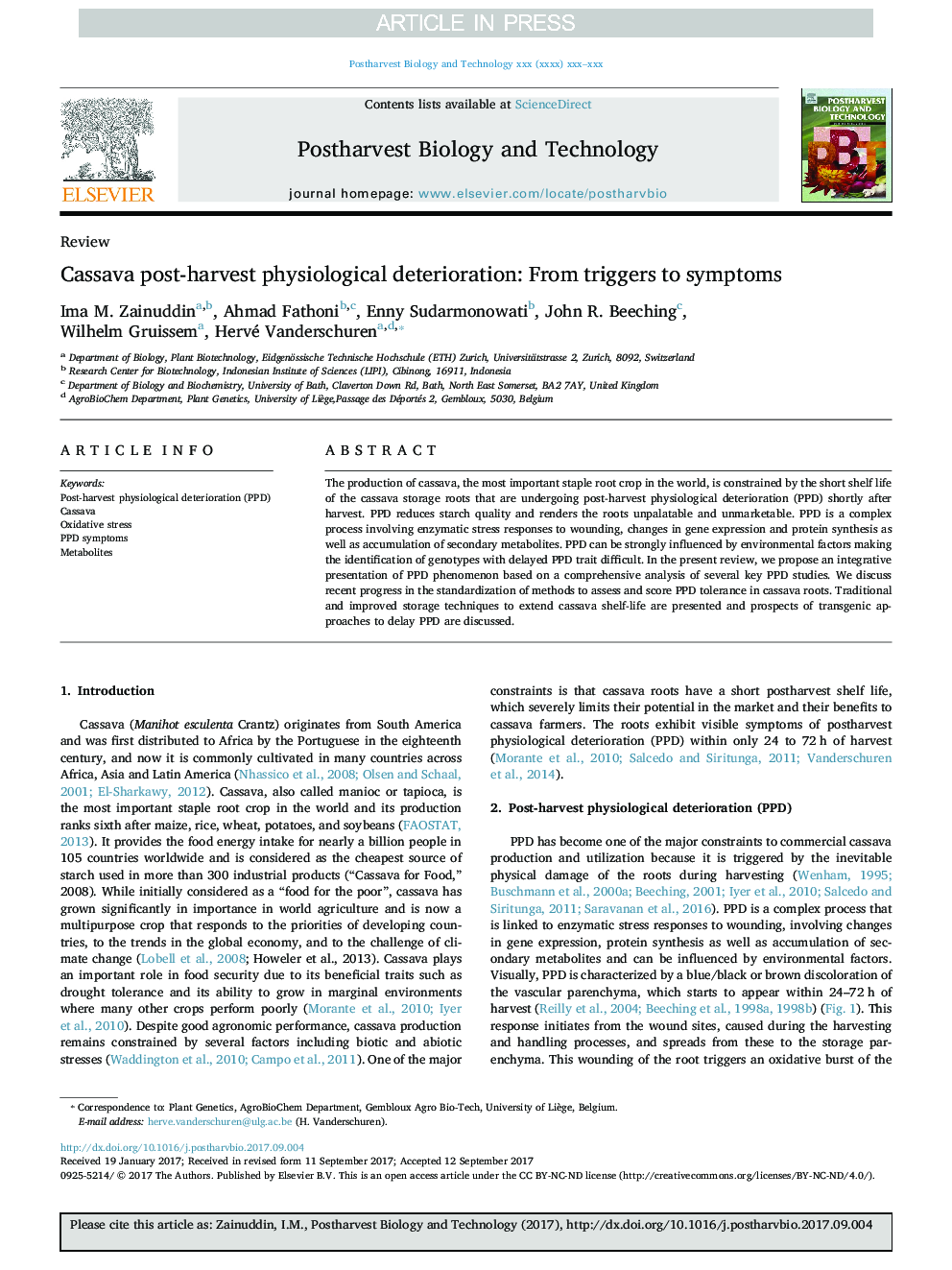| Article ID | Journal | Published Year | Pages | File Type |
|---|---|---|---|---|
| 8881928 | Postharvest Biology and Technology | 2018 | 9 Pages |
Abstract
The production of cassava, the most important staple root crop in the world, is constrained by the short shelf life of the cassava storage roots that are undergoing post-harvest physiological deterioration (PPD) shortly after harvest. PPD reduces starch quality and renders the roots unpalatable and unmarketable. PPD is a complex process involving enzymatic stress responses to wounding, changes in gene expression and protein synthesis as well as accumulation of secondary metabolites. PPD can be strongly influenced by environmental factors making the identification of genotypes with delayed PPD trait difficult. In the present review, we propose an integrative presentation of PPD phenomenon based on a comprehensive analysis of several key PPD studies. We discuss recent progress in the standardization of methods to assess and score PPD tolerance in cassava roots. Traditional and improved storage techniques to extend cassava shelf-life are presented and prospects of transgenic approaches to delay PPD are discussed.
Keywords
Related Topics
Life Sciences
Agricultural and Biological Sciences
Agronomy and Crop Science
Authors
Ima M. Zainuddin, Ahmad Fathoni, Enny Sudarmonowati, John R. Beeching, Wilhelm Gruissem, Hervé Vanderschuren,
